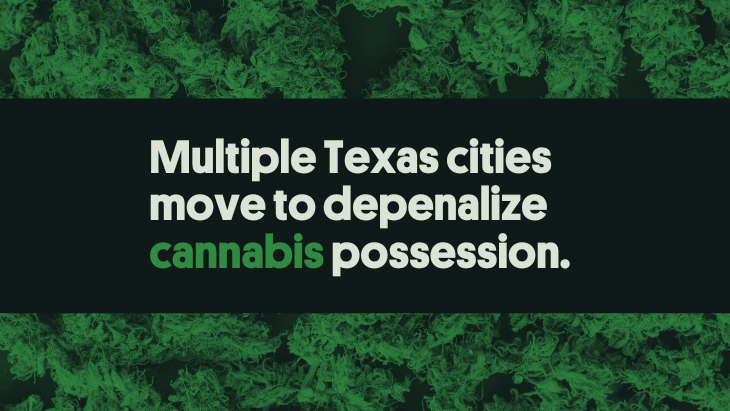This Election Day was another historic win for cannabis freedom. Maryland and Missouri became the 20th and 21st states to adopt adult-use legalization. We are so extremely proud of the NORML Chapters, members, local organizers, and legalization supporters like you who worked tirelessly to bring home these major victories.
|
While this year’s midterm elections may not have been a ‘clean sweep’ for reform advocates, our momentum continues unabated. Are we in a stronger place today than we were yesterday? Of course we are. Two more states, Maryland and Missouri, have wisely elected to legalize and regulate cannabis — policies that will expand the freedoms and civil liberties of over 7 million Americans. In addition, voters in cities across this country — including over 400,000 Texans — acted to end the senseless and counterproductive policy of arresting and prosecuting those who possess and use cannabis.
|
Maryland voters approved Question 4, directing state lawmakers to establish rules and regulations governing the production and sale of cannabis to adults. By approving Question 4, voters also triggered the enactment of separate, complementary legislation defining marijuana possession limits and facilitating the automatic review and expungement of low-level cannabis convictions. Adults 21 and older will be legally permitted to possess up to 1.5 ounces of cannabis and/or 12 grams of cannabis concentrates beginning in July 2023 and will also be permitted to grow up to two cannabis plants in their homes for their own personal use. Those with past records for marijuana-related crimes can also begin petitioning the courts for expungement relief beginning next year.
|
In Missouri, voters decided in favor of Amendment 3, legalizing the possession, cultivation, and licensed retail sale of cannabis for those ages 21 and older. Beginning on December 8, 2022, adults will be permitted to possess up to three ounces of cannabis and to home-cultivate up to six flowering plants, six immature plants, and six plants under 14 inches for their own personal use. It also establishes a program to automatically review and expunge criminal records for eligible non-violent marijuana-related marijuana offenses. The measure seeks to broaden participation in the licensed marijuana marketplace and makes improvements to the state’s medical cannabis program.
|
Voters in the Texas cities of Denton, Elgin, Harker Heights, Killeen, and San Marcos all voted in support of municipal measures that largely prohibit local police officers from either arresting or citing people for Class A or Class B marijuana misdemeanors. Over 400,000 Texans reside in those cities.
|
Voters in five Ohio cities — totaling some 30,000 people — similarly passed ballot measures either reducing or eliminating local marijuana possession penalties. Those towns include Corning, Helena, Kent, Laurelville, Rushville, and Shawnee.
|
Michigan voters in numerous towns decided in favor of local measures to allow for the retail sale of either medical or adult-use cannabis products.
|
Rhode Island voters in 25 of 31 eligible towns approved measures to allow licensed cannabis dispensaries in their localities.
|
|




